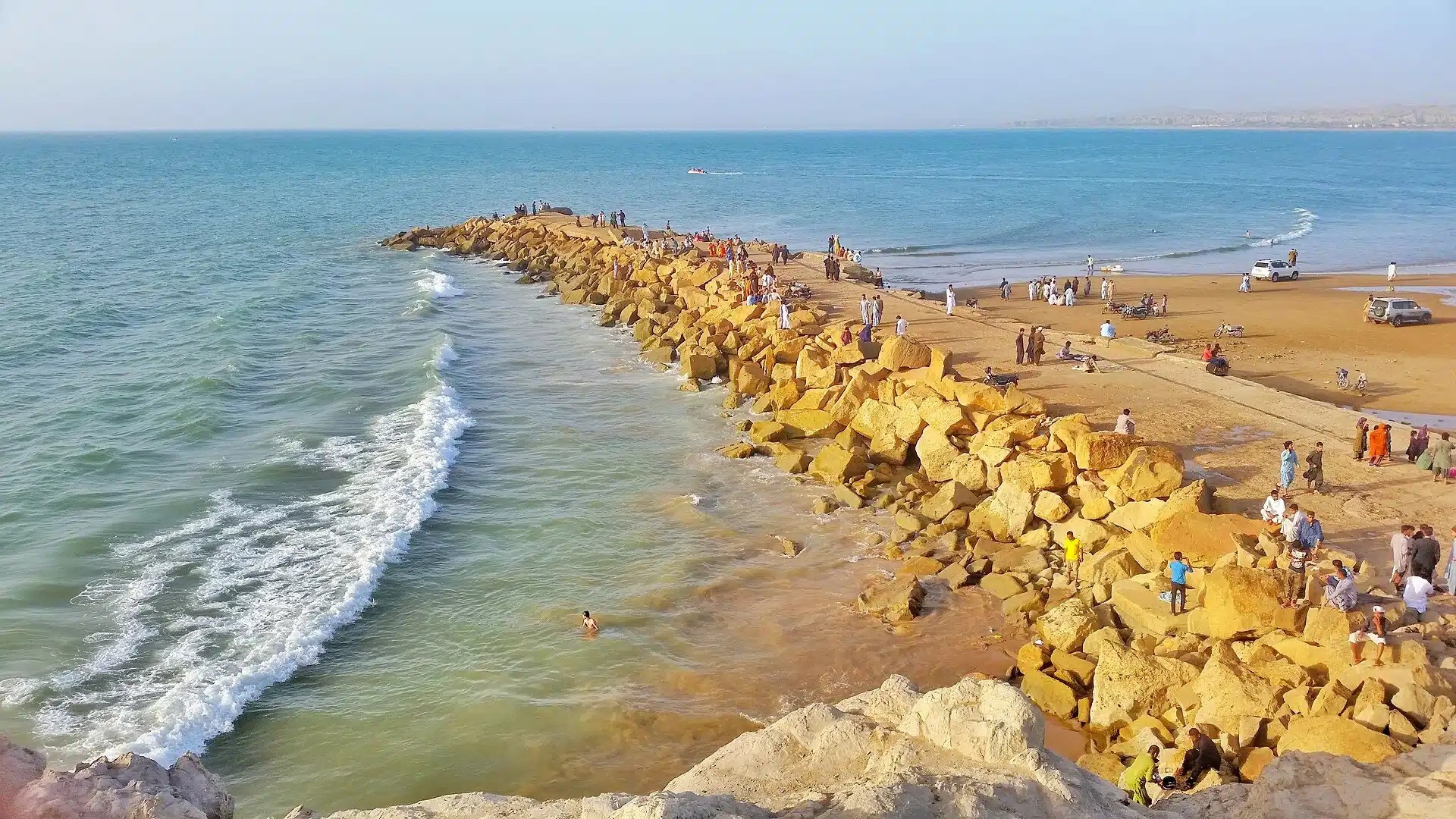Author: Khadija Asif
Keywords: Climate Change, Aquifers, Irrigation, Water Security, Hydro-Diplomacy
Introduction
Imagine if we could see beneath Pakistan’s dry riverbeds as precisely as an MRI allows a doctor to view
the human body. Hidden, underused, and vital for Pakistan’s future survival, great subterranean water
reserves lie beneath the Sutlej and Ravi rivers as well as Rawalpindi and Islamabad. As water experts
Hassan Abbas and Asghar Hussain have observed, these subterranean aquifers contain an estimated
400 million acre-feet of fresh water, sufficient to run the Indus River for three full years. These secret
reservoirs offer a challenge as well as an advantage at a time when surface rivers are drying and water
shortage is getting more severe.
These are concealed reserves?
An aquifer is a body of permeable rock beneath the ground containing water. In Pakistan’s case, the old
riverbeds of the Sutlej and Ravi still hold massive freshwater reserves, rebuilt naturally over millennia by
floods and rain. However, the surface flow of these rivers has dropped drastically, especially following the
Indus Waters Treaty (1960), giving India authority. While under them lies a treasure of underground
water, unknown and underused, today we only see dry beds and empty channels. Unlocking these reserves
calls for a thorough scientific investigation covering their size, ascertainable sustainable extraction capacity,
and planning of their use. Without appropriate research, extraction may cause overuse, damage to the
soil, and harm to ecosystems. Luckily, in a positive turn of events, the World Bank has lately approved
money to help Pakistan become climate resilient. Mapping and researching these subterranean water
systems has to be the first priority for this money.
The Prospect of Ecological Development
Should these subterranean water resources be verified and under control, Pakistan’s agricultural sector
could be transformed. Pakistan could use distributed water systems rather than depending just on surface
canals and erratic rainfall. These would be drip irrigation, solar-powered tube wells, and moisture sensor
technology that is, minimal waste delivery of water straight to plant roots. Such systems would be a change
from out-of-date flood irrigation, which sometimes wastes massive volumes of water. Actually, applying
contemporary irrigation methods could boost agricultural output and help to save water supplies for the
next generations.
Pakistan has to invite private-sector investment by open, honest policies if it is to undergo this change.
Under strict environmental criteria, public-private partnerships (PPPs) could be set up whereby businesses
fund the construction and upkeep of groundwater extraction systems including horizontal collector wells.
Unbundling land and water management will help the nation draw major investment and creative ideas.
Drawing Lessons from Regional Events
The Indira Gandhi Canal project of India brought Thar Desert irrigation across borders. Although it
effectively increased agricultural output, it also brought major issues, including water loss via seepage and
evaporation and soil salinity that is, the build-up of salt in the soil. From these errors, Pakistan has to
grow. Sustainable development calls for smart, efficient, scientifically guided practices; it cannot mean just
dumping more water onto land. It would be foolish to decide to create dry regions like Cholistan without
first guaranteeing water availability. Pakistan’s approach must thus be first to solve the water issue, then
develop the land. Any future land concessions for business or agriculture have to include appropriate
irrigation infrastructure including pipeline networks and drip systems.
Water, Climate, and International Relations
Water shortage is a global security issue as much as a household one. One basic human right
acknowledged by the UN is access to clean water. Rivers that span national boundaries—like the Nile in
Africa or the Jordan River in the Middle East have become flashpoints for conflict worldwide. With regard
to the Indus Waters Treaty, Pakistan and India already have a delicate relationship. Conflicts over water
could get more severe as climate change speeds forward unless both nations embrace cooperative
management plans. One could consider the Indus Basin as a shared regional resource rather than as a
battlefield. India and Pakistan have to cooperate to make sure the Indus Delta receives enough water, so
safeguarding the ecology and the means of life for millions of people. This calls for a change toward hydrodiplomacy, in which peace is achieved with water cooperation instead of strife.
The Roadmap Forward
Though dire, the situation is hopeful. The resource is below our feet. There is technology available in drip
irrigation, solar energy, and sophisticated moisture control. Political will and scientific planning are the one
thing lacking. For Pakistan, a smart, sustainable water economy needs to be grounded on:
- Underground water reserves: scientific study.
- Public-private alliances and structured personal investments.
- Solutions for renewable energy to run irrigation.
- Modern irrigation methods are substituting for antiquated flood control systems.
- Regional river basin management cooperation
Real, immediate threats are food insecurity, population increase, and climate change. Pakistan can create
a climate-resilient future, enhance its food security, and help to bring about regional peace by releasing
the latent water under its dry rivers. Now is the moment to act with vision, urgency, and clarity.









